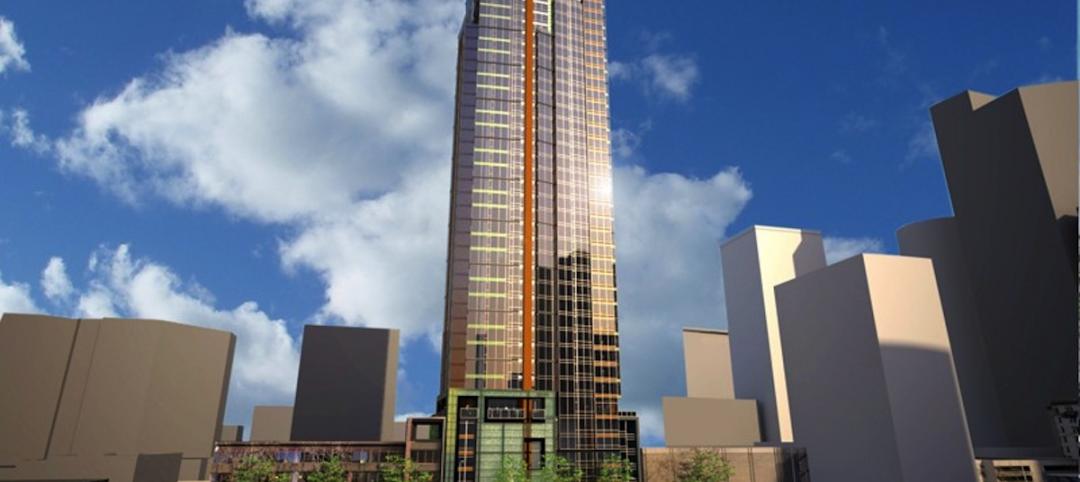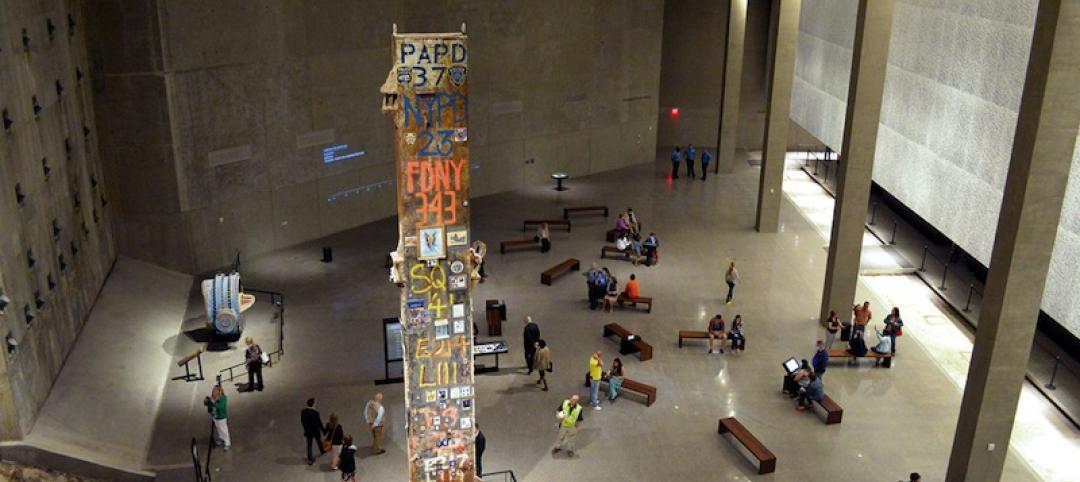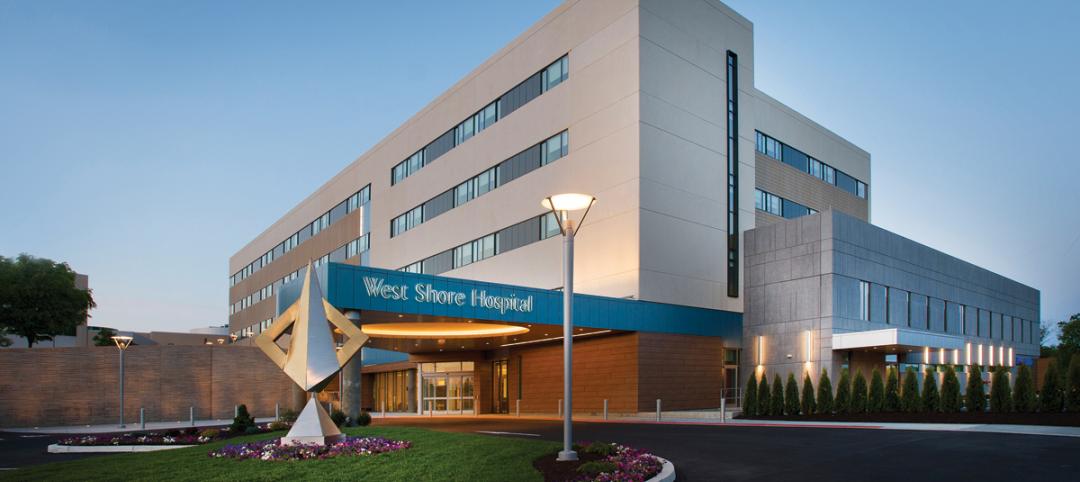This week, the Green Building Advisory Committee established by the General Services Administration (GSA), officially recommended to GSA that the LEED green building certification system be used for all GSA buildings as the best measure of building efficiency. The committee also conveyed that LEED should be the primary way to show how agency buildings use energy and water and that LEED standards are the most conducive to meet the Energy Independence and Security Act.
The Green Building Advisory Committee has evaluated more than 160 tools and systems since it began in 2011, and in February, GSA released a request for information (RFI) that publicly lauded the value of green building rating systems like LEED and asked for additional input into important issues that could help GSA accelerate and improve its green building work.
“GSA has been a leader in energy and sustainability, and we are thrilled to see the leaders in the public and private sectors continue to recommend LEED as the best choice for GSA to maintain its leadership status while improving sustainability, reducing energy and saving money for its buildings,” said Roger Platt, senior vice president of Global Policy & Law, USGBC. “Consensus-based and market-driven, LEED has been and continues to be invaluable to thousands of building professionals and remains the best option for the GSA and any governmental agency looking to save taxpayer dollars and increase energy efficiency.”
According to an article released this week by Federal News Radio, GSA received more than 400 comments from 162 stakeholders from all facets of the building and academic industries as well as local federal and local government agencies. The full list of comments will be released later this spring, but the recommendation to use LEED comes from a study of more than 160 tools and standards, which found only three of them addressed the entire building system.
“Every single time green building and LEED have been evaluated by our most prestigious institutions, like the National Academy of Sciences, the National Research Council and the National Laboratories, the practice or green building and LEED certification has been shown to save taxpayer dollars and increase energy efficiency,” continued Platt. “Lawmakers should see these repeated conclusions and continue supporting public sector use of LEED.”
A study done by The Pacific Northwest National Laboratory (PNNL) found that GSA LEED certified buildings used 25 percent less energy than the national average and cost 19 percent less to operate. GSA’s application of LEED has helped in the agency’s building efficiency efforts, and there are now more than 4,000 LEED certified government projects with another 8,000 in the pipeline as registered projects. A recent report from GSA shows the agency has successfully reduced its energy use by almost 20 percent since 2003 and water use by almost 15 percent since 2007.
In addition, in a letter to GSA in July of 2012, 1,260 companies from the green building industry opposed deviating from LEED in federal facilities because such a change would add cost to the building and leasing process across the building industry.
To see why LEED is the only rating system diverse and dynamic enough to continue to drive market transformation, check out our latest infographic that shows LEED in motion.
About LEED
As the most widely recognized and widely used green building program across the globe, LEED is transforming buildings, homes and communities in all 50 states and 135 countries. LEED guides the design, construction, operations and maintenance of nearly 50,000 projects worldwide, comprising 9.3 billion square feet of commercial and institutional construction space, and nearly 117,000 additional residential units. By using less energy, LEED-certified spaces save money for families, businesses and taxpayers; reduce carbon emissions; and contribute to a healthier environment for residents, workers and the larger community. Learn more at usgbc.org/leed.
About the U.S. Green Building Council
The U.S. Green Building Council (USGBC) is committed to a prosperous and sustainable future through cost-efficient and energy-saving green buildings. USGBC works toward its mission of market transformation through its LEED green building program, robust educational offerings, a nationwide network of chapters and affiliates, the annual Greenbuild International Conference & Expo, and advocacy in support of public policy that encourages and enables green buildings and communities. For more information, visit usgbc.org.
Related Stories
Contractors | Apr 20, 2015
Too many construction projects don’t meet owners’ expectations: KPMG report
Causes for delays, overruns, and underperformance include project management talent shortages, distrust between owners and contractors, and the lack of fully integrated project management systems.
High-rise Construction | Apr 17, 2015
Construction begins on Goettsch Partners-designed Nanning China Resources Center Tower
The tower's design is derived from its multiple uses, which include 170,000 sm of Class A office space, 5,000 sm of boutique retail, and a 45,000-sm luxury Shangri-La hotel.
Museums | Apr 16, 2015
SANAA and Snøhetta tie at first place for Budapest museum bid
The two firms submitted designs for the New National Gallery and Ludwig Museum, one of five planned museums to be constructed in a park just outside the urban center of Hungary’s capital.
High-rise Construction | Apr 16, 2015
Construction begins on Seattle's Tibet-inspired Potala Tower
Construction on the 41-story Potala Tower in Seattle finally kicked off following a ground-breaking ceremony seven months ago.
Architects | Apr 14, 2015
Jeanne Gang, Bjarke Ingels among participants for inaugural Chicago Architecture Biennial
Some big names include Bjarke Ingels Group and Studio Gang Architects
Sports and Recreational Facilities | Apr 13, 2015
USTA breaks ground on what will be the country’s largest tennis complex
The 63-acre facility is being positioned as a cornerstone for a sports innovation and performance district in Lake Nona, Fla., a 7,000-acre master planned community that continues to expand.
Building Team Awards | Apr 10, 2015
14 projects that push AEC teaming to the limits
From Lean construction to tri-party IPD to advanced BIM/VDC coordination, these 14 Building Teams demonstrate the power of collaboration in delivering award-winning buildings. These are the 2015 Building Team Award winners.
Building Team Awards | Apr 10, 2015
Prefab saves the day for Denver hospital
Mortenson Construction and its partners completed the 831,000-sf, $623 million Saint Joseph Hospital well before the January 1, 2015, deadline, thanks largely to their extensive use of offsite prefabrication.
Building Team Awards | Apr 10, 2015
Anaheim’s soaring intermodal hub
Anaheim's Regional Transportations Intermodal Center is the largest ETFE project in North America.
Building Team Awards | Apr 10, 2015
Virtual collaboration helps complete a hospital in 24 months
PinnacleHealth needed a new hospital STAT! This team delivered it in two years, start to finish.

















